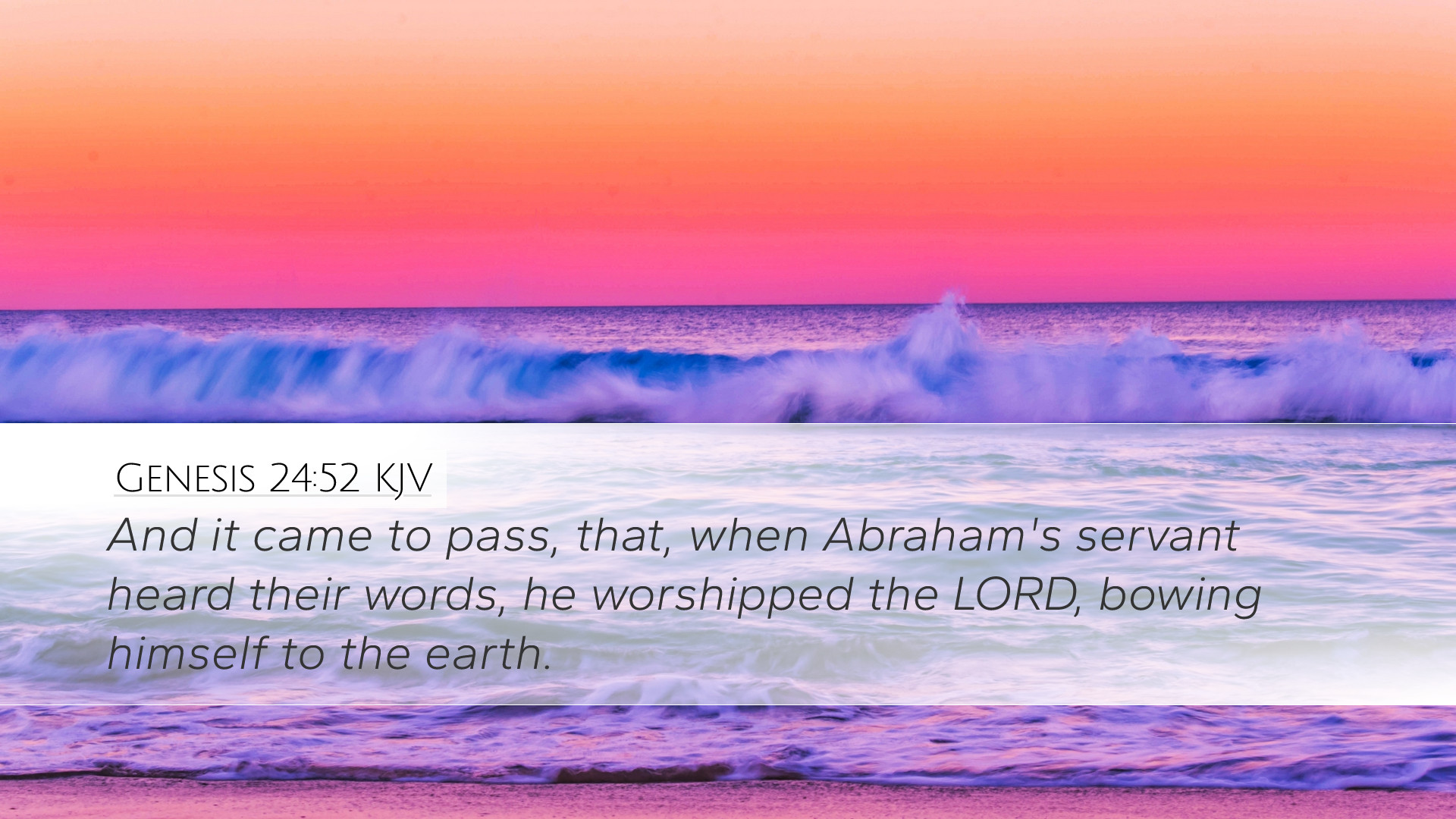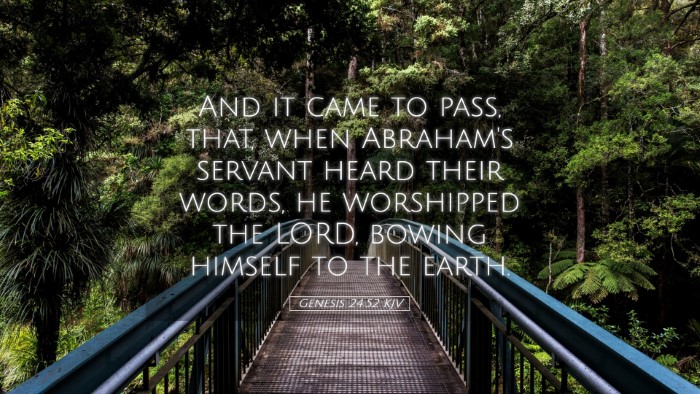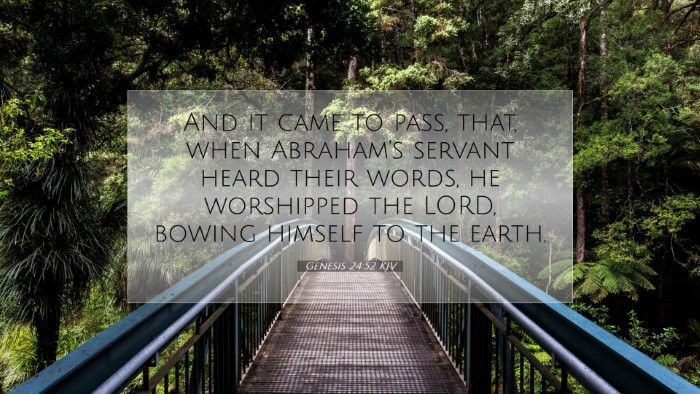Commentary on Genesis 24:52
Genesis 24:52 states, "And it came to pass, when Abraham's servant heard their words, he worshipped the Lord, bending himself to the earth."
This verse marks a pivotal moment in the narrative of Abraham’s servant as he discovers that his quest for Isaac’s bride, Rebecca, has been divinely sanctioned. The response exhibited by the servant serves as a model of faith and reverence, displaying deep gratitude and humility.
Contextual Background
Understanding this verse requires examination of the broader narrative found in Genesis 24, where Abraham, nearing death, sends his servant to find a wife for his son Isaac from his own people in Mesopotamia rather than among the Canaanites. This mission illustrates the importance of maintaining the covenantal lineage that Abraham is tasked to secure.
The Role of the Servant
The servant's journey is laden with expectations and divine guidance. According to Matthew Henry, “The servant, a type of the Holy Spirit, acts with a strong sense of duty and divine oversight.” His keen reliance on prayer and specific signs from God characterizes his mode of operation, emphasizing that this endeavor is more than a mere quest but a sacred undertaking aligned with God's will.
The Divine Providence
The servant specifically prays for the right woman and observes God’s providential response in Rebecca’s actions. Albert Barnes notes the importance of this divine intervention, citing that “the success of the servant’s mission is clearly seen as the result of God’s sovereign guidance.” The very fact that Rebecca appears at the well at the time the servant arrives signals a miraculous orchestration. The servant acknowledges this, which leads him to worship.
The Act of Worship
The act of worship upon hearing the family’s response—confirming that Rebecca is indeed willing to go with him—is paramount. Adam Clarke emphasizes that “genuine worship is marked by humility and recognition of God’s supreme authority.” The phrase "he worshipped the Lord" indicates the servant's immediate recognition of God's hand in the success of his mission.
Symbolism of Bending to the Earth
The gesture of bending down to the earth symbolizes surrender and reverence. The posture of worship serves as a reminder for all believers of their humble position before the Almighty. This act of submission reinforces a key theme throughout the Scriptures: humanity's need to recognize God’s sovereignty in all circumstances.
Theological Implications
- Divine Guidance: The passage illustrates God’s providence, as seen in the servant’s journey and the response of Rebecca’s family.
- Prayer in Action: The servant’s reliance on prayer underscores the necessity of seeking God’s direction in life's critical decisions.
- Response to God’s Will: The servant's joyful worship reflects the appropriate response to witnessing God’s intervention in one’s life.
Applications for Today
For pastors, students, and theologians, Genesis 24:52 provides rich insights applicable to modern faith journeys.
-
Faithful Service: Believers are encouraged to undertake their duties with faith and reliance on God, as the servant did.
-
Worship as Response: The believer’s life should be marked by continual worship and acknowledgment of God’s workings, indicating a life oriented toward divine gratitude.
-
Seeking God’s Will: The importance of seeking God earnestly in decision-making is paramount, reflected in the servant’s approach.
Conclusion
In conclusion, Genesis 24:52 encapsulates a profound moment of worship that stems from a life attuned to God’s purposes. The example set by Abraham's servant is not merely historical; it serves as a model for all who endeavor to know the will of God and respond in humble reverence. The call to worship is deeply embedded in the fabric of faith and illuminated in this narrative.


